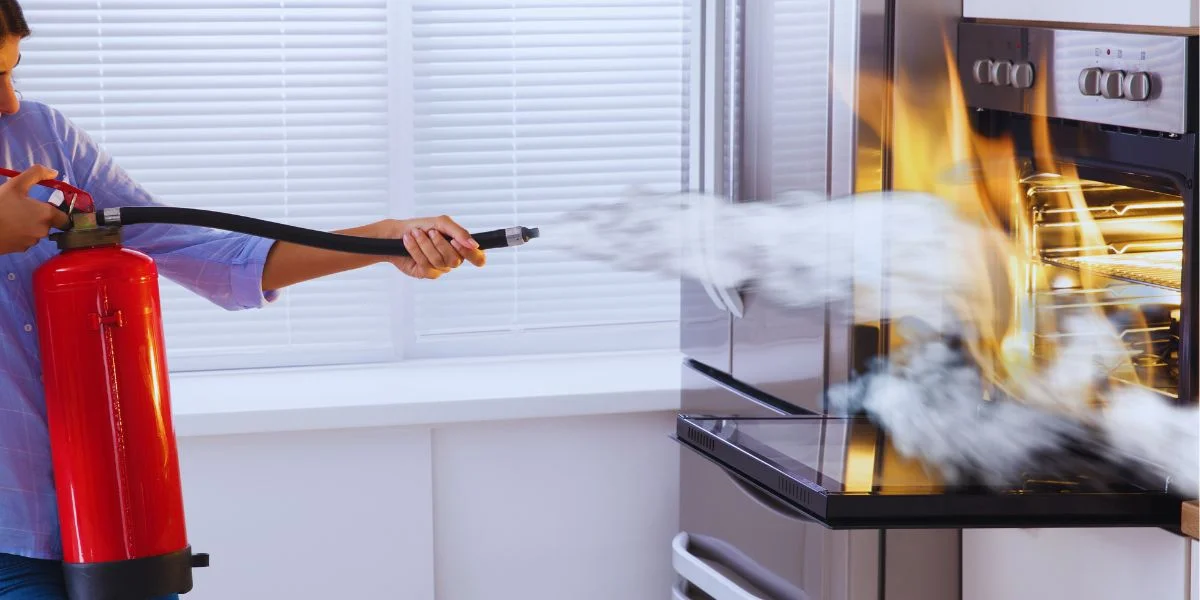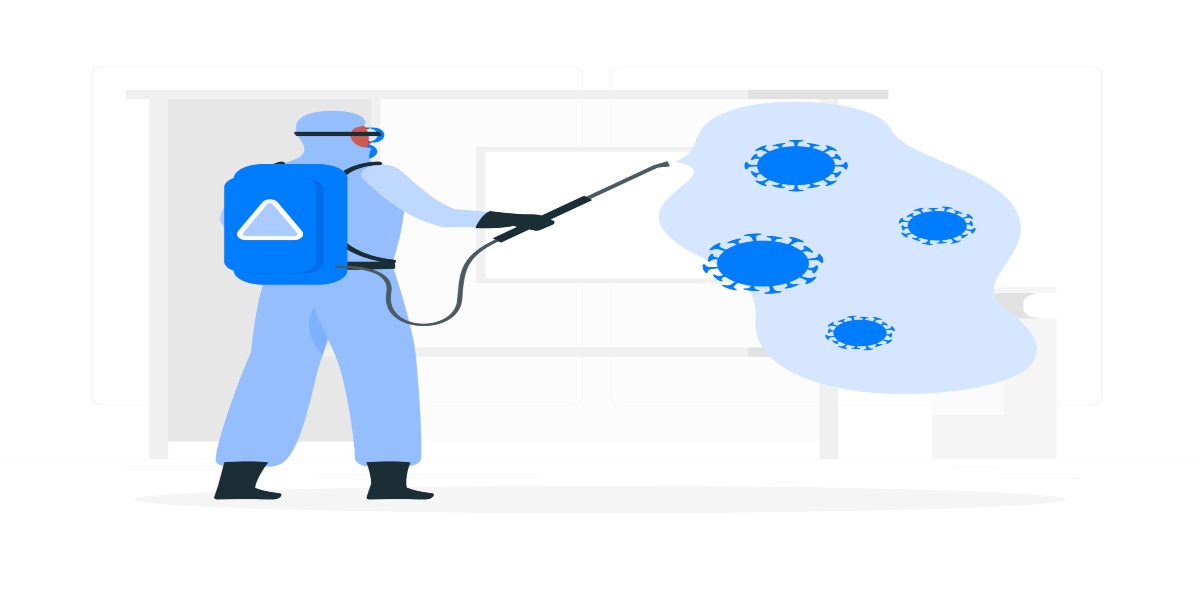
What Type of Fire Extinguisher is Used for Electrical Fires?
When it comes to protecting yourself and your property from electrical fires, having the right fire extinguisher is essential. Electrical fires can be particularly dangerous, as they involve energized electrical equipment that can easily ignite surrounding materials. A fire extinguisher specifically designed for electrical fires is crucial in these situations.
These specialized fire extinguishers are typically labeled as Class C extinguishers and are filled with a non-conductive extinguishing agent that is safe to use on live electrical equipment. They work by removing the heat element of the fire, making them a safe and effective tool for putting out electrical fires.
In this article, we will explore the importance of having a fire extinguisher for electrical fires, how they work, and the best practices for using them in case of an emergency. Knowing how to properly handle an electrical fire is crucial for minimizing damage and keeping yourself safe.
- Types of Fire Extinguishers
- Specific Fire Extinguishers for Electrical Fires
- Key Features of Electrical Fire Extinguishers
- How to Use an Electrical Fire Extinguisher
- Maintenance and Inspection
- Safety Tips for Preventing Electrical Fires
- Comparative Analysis of Extinguisher Brands
- Conclusion: Protecting Against Electrical Fires
- What causes electrical fires?
- What are some common causes of electrical fires?
- What type of fire extinguisher is recommended for electrical fires?
- How does a CLASS C fire extinguisher work on electrical fires?
- Can I use a water-based fire extinguisher on electrical fires?
- What are the different types of fire extinguishers available for electrical fires?
- Where should CLASS C fire extinguishers be placed for easy access in case of an electrical fire?
- Read More Blogs
Types of Fire Extinguishers
Fire extinguishers are classified into different categories based on the type of fire they are designed to extinguish. Class A extinguishers are suitable for common combustibles like wood and paper, while Class B extinguishers are used for flammable liquids. Class C extinguishers are designed for electrical fires, while Class D extinguishers are used for flammable metals. Class K extinguishers are specifically designed for kitchen fires involving oils and fats.
It is crucial to select the right type of fire extinguisher for the specific fire hazard present. Using the wrong type of extinguisher can be ineffective and even dangerous. Having the appropriate extinguisher on hand can prevent a small fire from escalating into a major disaster, and can potentially save lives and property.
Specific Fire Extinguishers for Electrical Fires
When it comes to dealing with electrical fires, it is crucial to have the right type of fire extinguisher on hand. Not all fire extinguishers are suitable for electrical fires, as using the wrong type can actually make the situation worse. Therefore, it is important to explore different extinguisher options specifically designed for electrical fires.
The ideal extinguishing agents for electrical fires are ones that are non-conductive and will not cause damage to electrical equipment. Class C fire extinguishers are specifically designed to tackle electrical fires and typically use materials such as carbon dioxide or dry chemical agents to effectively extinguish the flames without putting the user at risk of electric shock.
Key Features of Electrical Fire Extinguishers
Electrical fire extinguishers are specifically designed to safely extinguish fires involving electrical equipment. They are usually filled with a non-conductive agent, such as carbon dioxide or dry chemical powder, to prevent the risk of electric shock when used on live electrical fires. The design of electrical fire extinguishers also typically includes a nozzle or horn to safely direct the extinguishing agent towards the source of the fire without putting the user at risk.
One of the key features of electrical fire extinguishers is their non-conductive properties. This means that they do not conduct electricity and are safe to use on live electrical fires. Using a regular water-based extinguisher on an electrical fire can actually increase the risk of electric shock, making electrical fire extinguishers essential for any environment with electrical equipment present.
How to Use an Electrical Fire Extinguisher
Using an ELECTRICAL FIRE EXTINGUISHER
When faced with an electrical fire, it is essential to use the right type of fire extinguisher to prevent harm and minimize damage. An electrical fire extinguisher is specifically designed to put out fires involving electrical equipment. Below is a step-by-step guide on proper usage:
Step 1: Ensure that the extinguisher is the correct type for electrical fires, marked with a Class C label.
Step 2: Pull the pin located on the extinguisher handle to break the tamper seal.
Step 3: Aim the nozzle at the base of the fire and squeeze the handle to release the extinguishing agent.
When using an electrical fire extinguisher, safety precautions are paramount. Always remember to stand at a safe distance from the fire and never turn your back on it. If the fire is out of control, evacuate the area immediately and call emergency services. Safety should always be the top priority when dealing with any type of fire.
Maintenance and Inspection
Regular maintenance is crucial for ensuring that equipment and facilities remain in optimal working condition. By regularly conducting maintenance checks, potential issues can be identified and addressed before they escalate into costly repairs or breakdowns. This proactive approach not only helps to minimize downtime but also extends the lifespan of equipment. Additionally, regular maintenance can improve safety by ensuring that equipment is operating correctly and in compliance with regulations. Routine inspections play a key role in this process, as they allow maintenance personnel to assess the condition of equipment and identify any signs of wear or damage. Regular inspections help to detect issues early on, preventing them from developing into more serious problems. Overall, a comprehensive maintenance and inspection program is essential for maintaining the efficiency, safety, and longevity of equipment and facilities.
Safety Tips for Preventing Electrical Fires
Electric fires can be devastating and potentially life-threatening, but by following some simple safety tips, you can significantly reduce the risk of an electrical fire in your home or workplace. One of the best practices for fire prevention is to regularly inspect and maintain your electrical systems. This includes checking for frayed wires, overloaded outlets, and making sure all electrical appliances are in good working condition. It is also important to never overload circuits and use extension cords sparingly and appropriately. Another important safety tip is to always unplug appliances when not in use to prevent overheating and potential fires.
Identifying potential hazards is crucial in preventing electrical fires. Be on the lookout for signs such as flickering lights, outlets that are warm to the touch, or a burning smell. These could indicate a potential problem that should be addressed immediately. It is also important to keep flammable materials away from electrical outlets and appliances to prevent any accidental fires.
Case Studies and Real-Life Scenarios
When it comes to studying electrical fires, case studies and real-life scenarios provide invaluable insights into the causes and outcomes of such incidents. By analyzing examples of electrical fires, experts can gain a better understanding of the factors that contribute to these dangerous events. In addition, these case studies help highlight the importance of effective fire extinguisher usage in mitigating the damages caused by electrical fires.
Fire extinguishers play a critical role in controlling and suppressing flames before they escalate into potentially catastrophic situations. Real-life scenarios serve as practical illustrations of how proper fire extinguisher usage can make a significant difference in saving lives and preventing property damage during electrical fire emergencies.
Comparative Analysis of Extinguisher Brands
When it comes to ensuring the safety of your home or business, choosing the right fire extinguisher is crucial. With so many brands available on the market, it can be overwhelming to make a decision. However, by reviewing top-rated extinguisher brands and comparing their features and performance, you can make an informed choice.
By examining factors such as the extinguisher's size, weight, and extinguishing agent, you can determine which brand offers the best overall value. Additionally, looking at customer reviews and ratings can provide insight into the durability and reliability of each brand's products. Comparative analysis of extinguisher brands allows you to see how they stack up against each other in terms of safety features, ease of use, and effectiveness in emergency situations.
Conclusion: Protecting Against Electrical Fires
Protecting against electrical fires is crucial in ensuring the safety of individuals and properties. By being aware of the key points and emphasizing the importance of preparedness and choosing the right extinguisher, the risks of electrical fires can be greatly minimized.
It is essential to regularly inspect and maintain electrical systems, avoid overloading circuits, and use appliances properly to prevent electrical fires. In case of an electrical fire, it is important to act quickly and decisively to extinguish the fire and protect yourself and others from harm. Being prepared for an electrical fire includes having an evacuation plan, knowing how to use a fire extinguisher correctly, and ensuring that smoke alarms are in working order. Quick and appropriate action can make a significant difference in the outcome of an electrical fire emergency.
Choosing the right extinguisher: Different types of fire extinguishers are designed for specific types of fires, including electrical fires. It is important to select the appropriate extinguisher and know how to use it effectively in case of an electrical fire. Investing in the right equipment can be a lifesaving decision.
What are some common causes of electrical fires?
Some common causes of electrical fires include overloaded circuits, faulty wiring, poor maintenance of electrical systems, and the misuse of electrical appliances.
What type of fire extinguisher is recommended for electrical fires?
The most suitable fire extinguisher for electrical fires is the CLASS C extinguisher. It is specifically designed to be used on fires involving live electrical equipment.
How does a CLASS C fire extinguisher work on electrical fires?
A CLASS C fire extinguisher contains a non-conductive agent that helps to smother the fire without conducting electricity, making it safe to use on electrical equipment.
Can I use a water-based fire extinguisher on electrical fires?
No, water conducts electricity and using a water-based fire extinguisher on an electrical fire can cause electrocution and further damage. Only a CLASS C extinguisher should be used for electrical fires.
What are the different types of fire extinguishers available for electrical fires?
Besides the CLASS C fire extinguisher, there is also the ABC multipurpose extinguisher which is suitable for various types of fires including electrical fires.
Where should CLASS C fire extinguishers be placed for easy access in case of an electrical fire?
CLASS C fire extinguishers should be located near areas with a high likelihood of electrical fires such as kitchens




